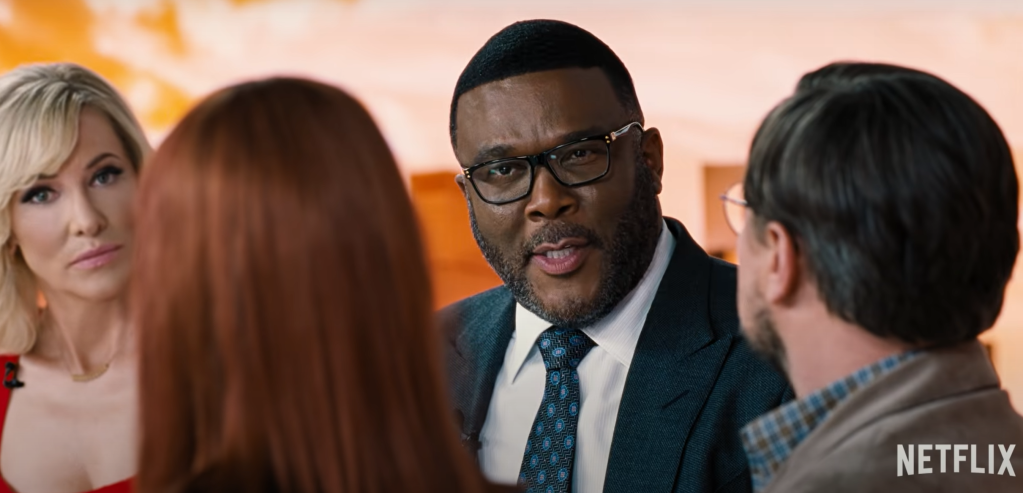I sat down to watch Adam McKay’s Netflix comedy Don’t Look Up over the Christmas break with an unusual burden of expectation. Half the people I’d known who had seen it — admittedly, mainly those on the right — had denounced it as unfunny, heavy-handed agitprop, whereas their politically opposed brethren praised it as “timely,” “inspiring” and “important.” Would I finish watching it and sign up for a series of Greta Thunberg podcasts, or smash my television in and take to the streets, hollering?
To be honest, the film is neither offensive nor clever enough to arouse such strong opinions. McKay, who seems to have segued from making clever comedies about idiots such as Anchorman and Step Brothers to making clever-clever satires about global politics, is no Stanley Kubrick, and this is no Dr. Strangelove. Its storyline, about two low-level astronomers accidentally discovering that the earth will be annihilated by a deadly meteorite, is a none-too-subtle allegory for climate change.
The strong work from Leonardo DiCaprio and Jennifer Lawrence in the leads is countered by wildly over-the-top performances from the likes of Meryl Streep (as a Trumpian populist president), Cate Blanchett (as a predatory TV anchor) and, most bizarrely, the estimable Sir Mark Rylance as a Bezos/Musk-esque billionaire oddball, complete with gleaming white teeth. It is long, occasionally funny and — spoiler alert — ends with a major character being eaten by a dinosaur. Animal Farm, this most certainly is not.
The presence of the all-star-cast (whose combined fees must have been astronomical) and McKay’s reputation will lure in the curious, but it seems most likely that the film will be remembered as a vehicle for DiCaprio, whose humorlessly committed off-screen climate activism seems incongruous given the reporting of his endless lavish cruise breaks with model girlfriends half his age.
DiCaprio is allowed to look slobbish and drab for the first half (until he is given a makeover and returns to his usual movie-star glamor), is given a romantic attachment to Blanchett’s character and a would-be scene-stealing, Network-esque meltdown monologue in the film’s second half. As usual, he performs with brio and dynamism, and is matched by Lawrence as his panicked and nihilistic foil. But I mourned the absence of genuine wit, bar an amusing running joke about the panicked security services placing bags over miscreants’ heads at the slightest opportunity. No doubt DiCaprio would tell me that the end of the world is no laughing matter, and he would be right. But did it really take a two-hour film to prove his point?
No doubt enormous cost aside, which will never be recouped in any conventional fashion, the film may be most notable for the way in which it resurrects, in a slapstick, absurdist fashion, the “message movie” beloved by such directors as Stanley Kramer. Back in the Fifties and Sixties, such earnest films as Guess Who’s Coming To Dinner and On The Beach dealt with such hot-button issues as racism and nuclear war in preachy and earnest ways. They were effective back then, but seem horribly dated today.
Assuming that the world is not annihilated by global warming over the coming decades, it is likely that the eventual destiny of Don’t Look Up will be to occupy a similar place in cinematic history in the future. But, of course, if the filmmakers are correct and we are all living in deserts and flooded wastelands by then, debating the merits and drawbacks of a 2021 black comedy is likely to be the last thing on anyone’s mind.


















